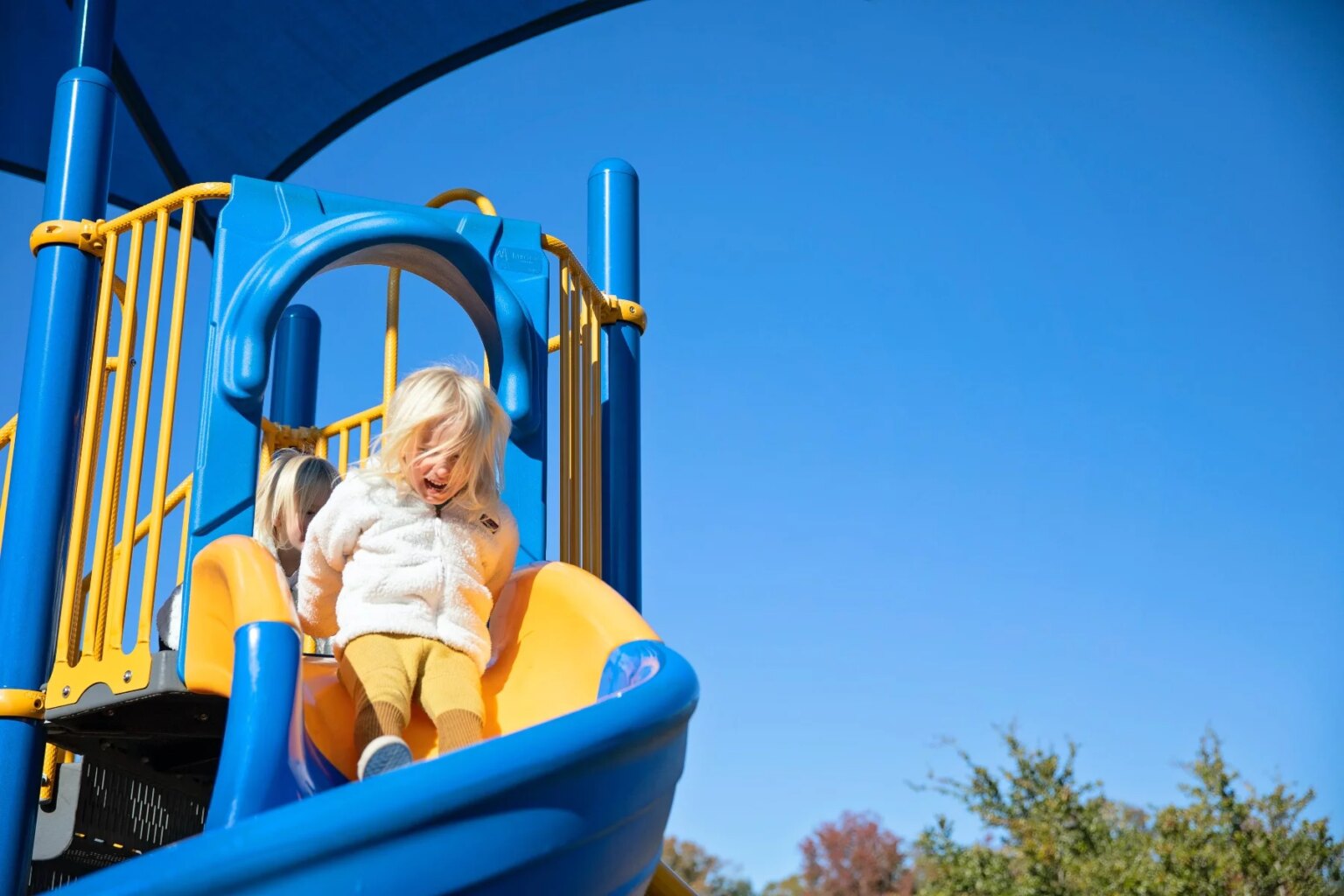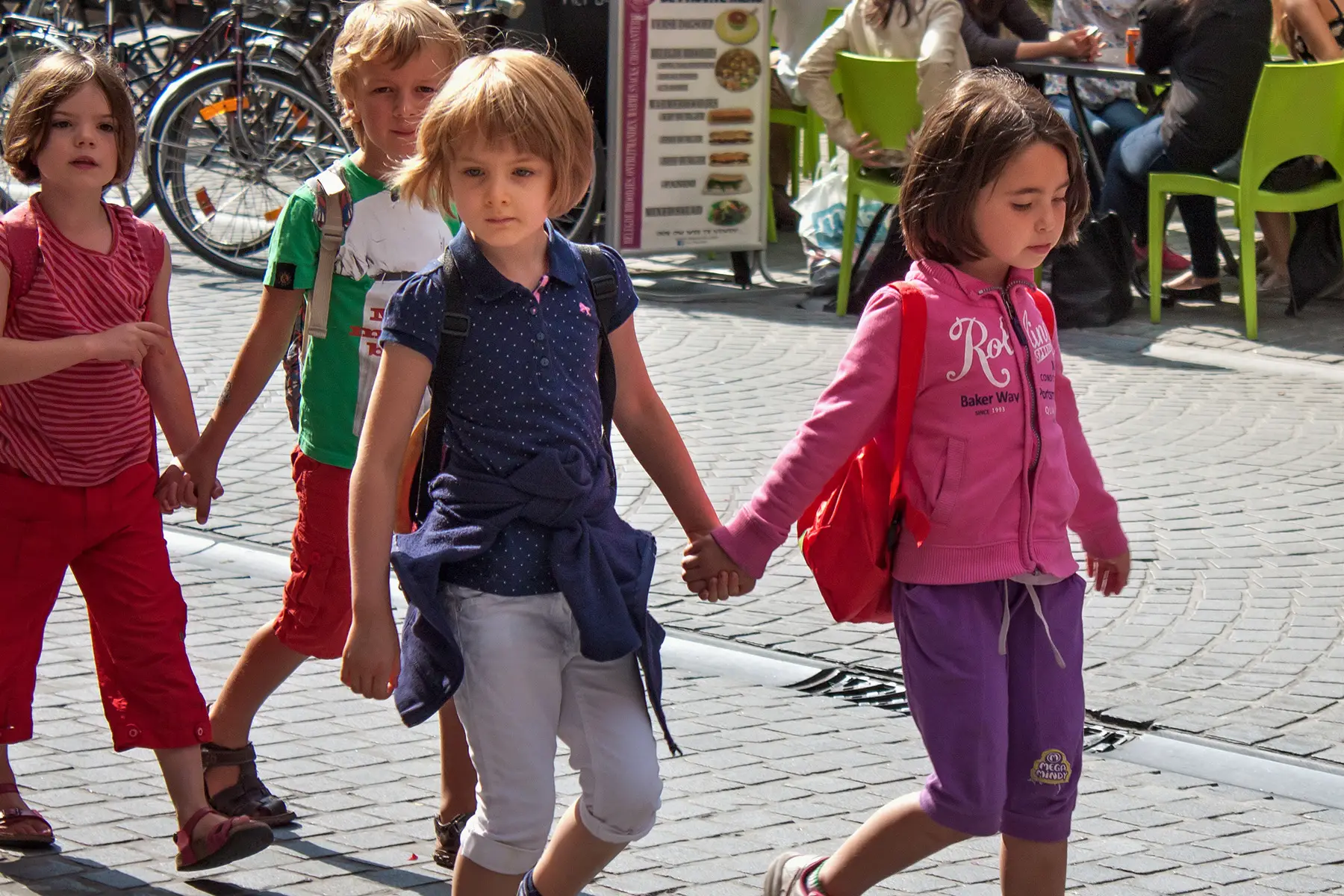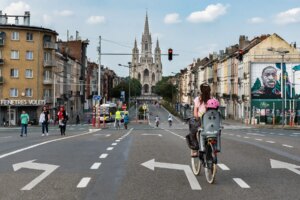Arranging for childcare can be challenging, especially if you’re in a new country. Back home, you may have had family and friends that could help out. However, with some proper research, you can find trusted and suitable childcare in Belgium.
Whether you’re having a baby or have recently moved to Belgium with your family, you’re in luck. The country offers several accessible childcare options and benefits. Moreover, it is a country of multiple national languages, so you may even find a childcare service in your preferred language.
This article covers the most essential information about childcare in Belgium, including the following:
St. John's International School
Looking for a first-class international education for your child in Belgium? St. John's International School has been teaching for over 50 years at their state-of-the-art learning facilities. They offer the complete IB program for students of all ages, ensuring your children have the best start in life whatever their background.
Childcare in Belgium
With its variety of chocolates, comic books, and children’s TV shows from Studio 100, Belgium is an ideal place for children to grow up in. The country offers enough for their parents to enjoy as well. Belgium has excellent beer and frieten, and the quality, cost, and accessibility of childcare are some of the best in Europe.
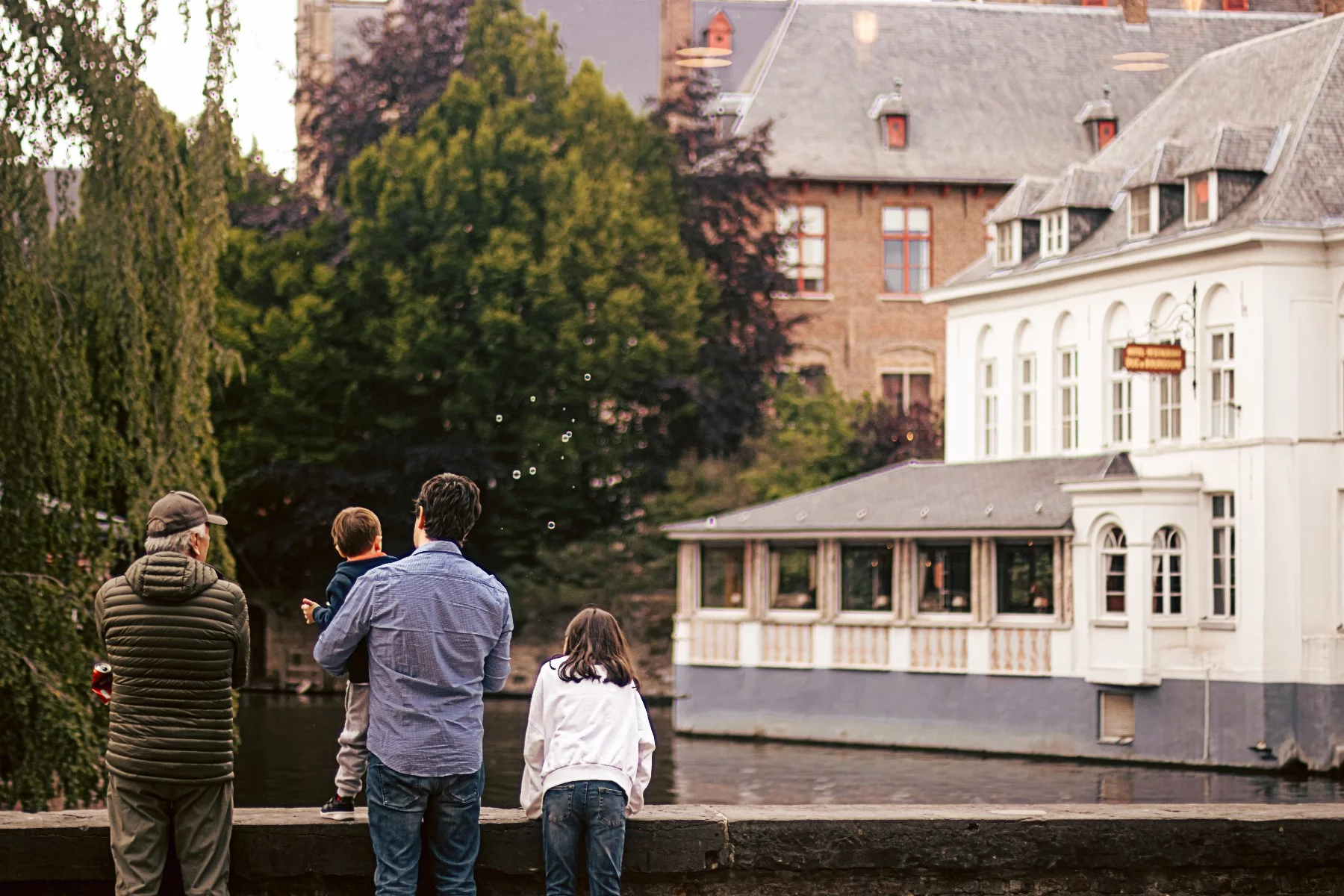
In 2020, UNICEF ranked Belgium 18th out of 41 on their list of parental leave and organized childcare. The country outperforms several other high-income countries, such as the United States, Switzerland, and Japan, and its neighbors, France and the Netherlands.
Belgium has a range of public and private childcare services available, including nurseries, daycare centers, childminders, and community-based groups. Two official agencies are in charge of overseeing these services:
- Office of birth and childhood at children and families’ service (Office de la Naissance et de l’Enfance, ONE) in the French-speaking region of Brussels and Wallonia
- Child and family (Kind en Gezin) in the Dutch-speaking region of Flanders
Parents also receive loads of benefits and childcare allowances to pay for childcare services.
Parental leave in Belgium
Working mothers can get up to 19 weeks of quasi-paid maternity leave (French: congé de maternité, Dutch: moederschapsverlof), and fathers and co-parents are entitled to 15 days of fully-paid birth leave (French: congé de naissance, Dutch: geboorteverlof). In 2023, this will be increased to 20 days.
Adoption parents get the same amount of (quasi)-paid parental leave as birth parents. Foster parents receive six days of quasi-paid leave per year.
Who can access childcare in Belgium?
All Belgian residents can make use of the public childcare that is subsidized by the government. If you’re looking for a private (and more expensive) childcare service, you’ll likely need to earn a higher salary.
To enroll your child into Belgian childcare, you’ll need to demonstrate that your child has received their mandatory polio vaccination. Often, childcare services also require that children are vaccinated against measles, mumps, and rubella. Each region might have its additional vaccine requirements as well.
Public childcare is very popular, and you’re usually put on a waiting list. It’s recommended to register with several daycare centers as soon as your pregnancy is confirmed.

It’s generally easier to secure a place in a non-subsidized private daycare. These have more places available and at shorter notice. However, because they can set their own fees, private childcare can sometimes cost as much as €800 per month, depending on the location and demand.
The costs for these services are tax-deductible.
What childcare options are available in Belgium?
Preschool and daycare
Belgium has several childcare options available for little ones from a few months to six years old. These include daycare centers, emergency childcare centers, childminders, and preschools or nurseries.
Daycare centers
Daycare centers (French: garderie, Dutch: kinderopvang) look after children up to six in group settings between nine and 18 children.
In some centers, they mix all ages together. In other cases, babies younger than 36 months go to a nursery (French: crèche, Dutch: crèche), and older children are placed in pre-K (French: prégardiennat, Dutch: peutertuin).
When you have an emergency, some parts of Belgium also have short-term childcare centers (French: halte garderie, dutch: crisiskinderdagverblijf). These are available for children up to six.
Preschools and nurseries
Once your child has turned two and a half, they can attend state-funded preschool (French: école maternelle, Dutch: kleuterschool). Therefore, all children living in the country are eligible, regardless of their nationality or residency status.
Often, preschools are part of a primary school (although stand-alone schools do exist). The advantage is that your child can stay in the same building and with the same school friends when they start compulsory primary education at the age of five.
If your child goes to a Dutch-language primary school, they must have had a minimum of 290 half-days at a Dutch-language preschool. If they cannot meet this requirement, they’ll have to take a language test to prove they have a sufficient understanding of the language.
Inclusive childcare
If your child has a disability, there are many schools and facilities in Belgium that can provide extra support. You can find these inclusive childcare centers (French: de soutien à l’inclusion (DSI) services, Dutch: inclusive opvang) through the official ONE or Kind en Gezin agencies.
International childcare
Belgium has three national languages (French, Dutch, and German). Schools and childcare services have either French or Dutch (or both) as their primary language. As a migrant parent, you might prefer to enroll your child in an international preschool or daycare center that has an English or second language curriculum.
International childcare is available in several cities around Belgium, including Brussels, Tervuren, Waterloo, Leuven, and Antwerp. International schools with preschool facilities in the Brussels region, for example, include:
- St. John’s International School
- British School of Brussels
- BEPS International School
- The International School of Brussels
- Antwerp International School
Community childcare initiatives
Joining a local parent network and playgroup is a great way to meet other families and organize a social activity or play date for your little ones.
There are several English-speaking playgroups in and around Brussels, including:
You can also check Meetups or join a closed online community, such as the Facebook group English Speaking Mums in Brussels.
Childcare provided by your employer
Sometimes, large institutes offer childcare services to their employees. For instance, some Belgian universities like KU Leuven and UGent have their own crèches for the children of their staff. The European Parliament in Brussels also offers a crèche for the children of members, officials, and parliamentary assistants.
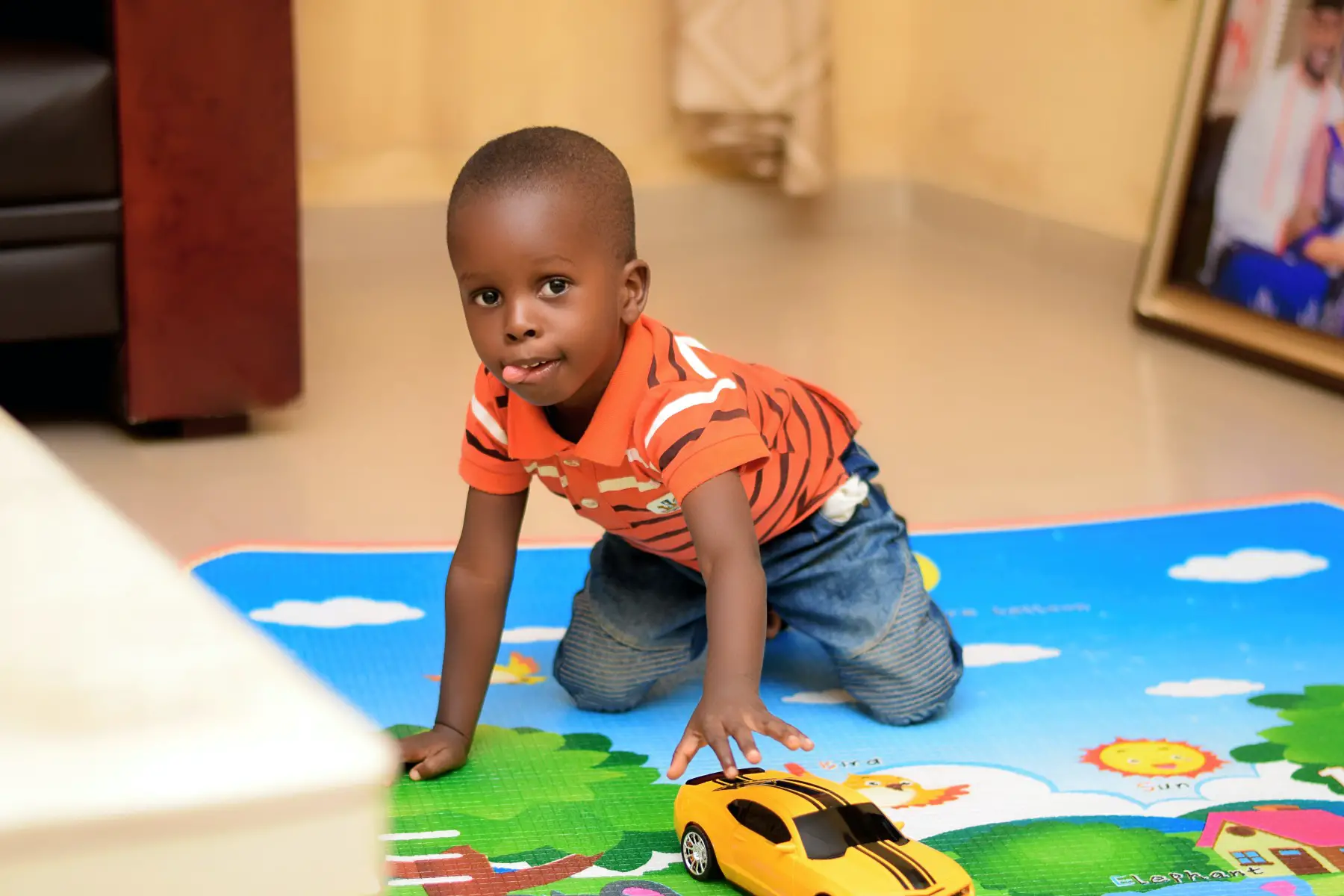
Parents can contact these daycare centers directly to register their children.
Belgian childminders
Another common way to look after your child in Belgium is by hiring a childminder. These family-based childcare professionals look after four to eight children aged between zero and seven. Because these groups are smaller than at daycare, your child can get more one-to-one attention.
Childminders in Belgium are either affiliated with a public social service or crèche (French: gardienne conventionnée, Dutch: aangesloten onthaalouder) or operate independently (French: gardienne indépendante, Dutch: zelfstandige onthaalouder).
Depending on your income, you can get a subsidy for affiliated childminders. Independent childminders do not get subsidized but are tax deductible if you are employed in Belgium.
Nannies and babysitters
Both nannies and babysitters work privately and are not required to register with ONE or Kind en Gezin. The best way to find a nanny or babysitter is through a dedicated agency or website, such as Ligue des Familles and Gezinsbond.
The advantage of these agencies is that they do background checks on their childcare providers. If you want to hire a nanny or babysitter through your own network, it’s best to ask for their experience and qualifications beforehand.
Rates for nannies and babysitters start at around €5 per hour, though most private professionals ask for €8–10 per hour. Generally speaking, these costs are not tax deductible, but it can be helpful to consult a tax expert for specialized advice.
Au pairs
Similarly to nannies, au pairs look after your children on a regular part-time or full-time basis. However, unlike nannies, au pairs don’t get a salary. Instead, they receive room and board, health insurance, and mandatory monthly pocket money of €450.
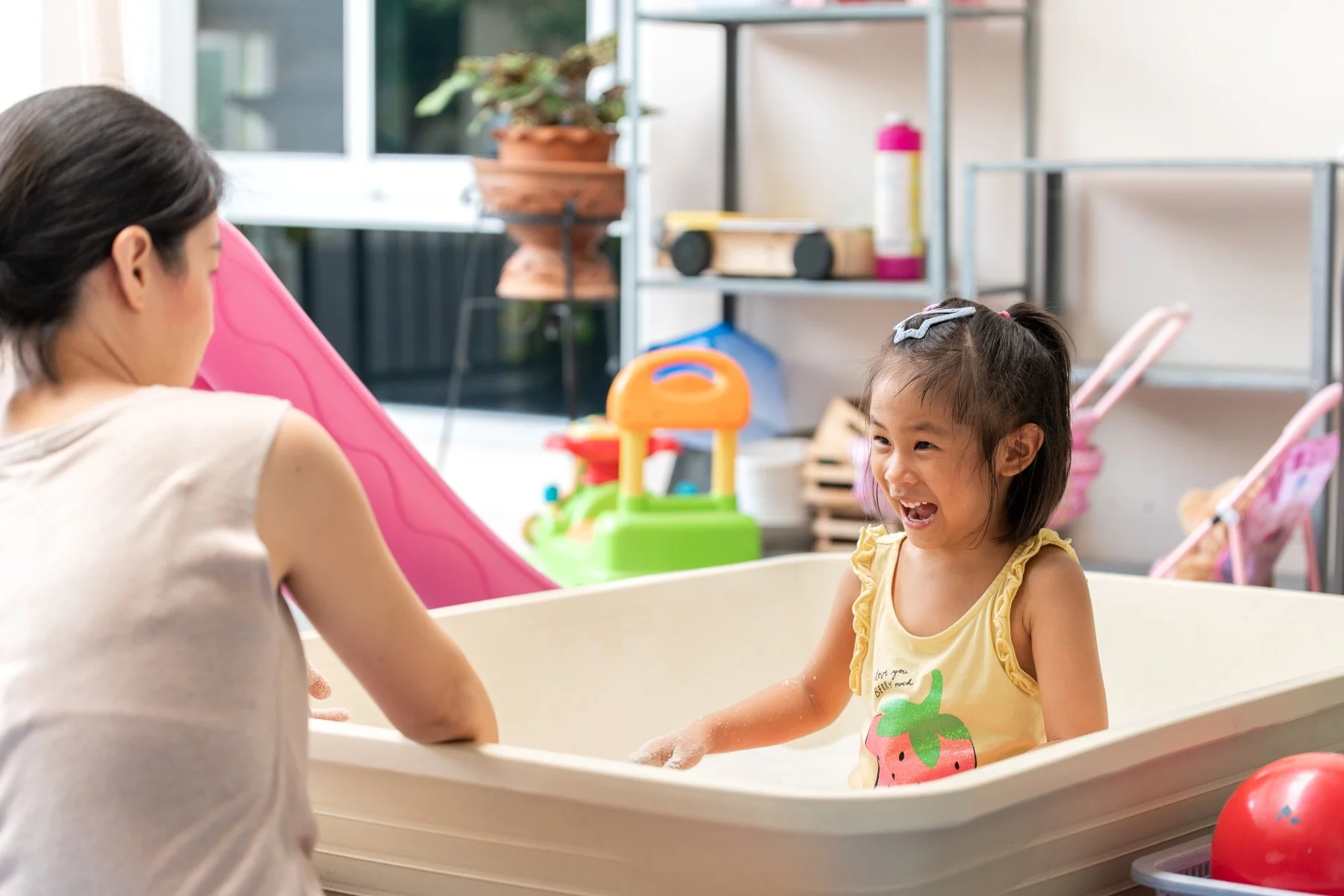
Au pairs from within the European Union (EU) do not need a Belgian work visa. Those from outside the EU do. Other requirements for au pairs include:
- They must be aged between 17 and 30
- They must have a valid passport or ID card
- They must have a basic knowledge of at least one national language
Childcare for school-going children
Usually, when your child reaches school-going age, they don’t really go to daycare anymore. Instead, they might attend a before and after-school club. These are more commonly referred to as accueil en dehors de l’école in French and buitenschoolse opvang en activiteiten (BOA) in Dutch.
As the name implies, these services look after your children before and after school hours. More importantly, they are also available during school-free days and school holidays.
The available care and activities can differ per region. The best way to explore your options is by contacting the school or the municipality directly.
The childcare centers set the costs of their activities. The fee will depend on which day and how many hours your child attends. Parents with income constraints or with more than one child might be able to get a discount. Furthermore, the costs of these services are tax deductible.
International after-school clubs
Cities popular with internationals, such as Brussels and Antwerp, have several international after-school clubs that offer social activities, including scouting, sports, or summer camps.
To secure a place for your child, it’s wise to enroll them early in the year. The costs of summer camps depend on their duration and activities and are usually tax deductible.
How to find childcare in Belgium
A good way to go about searching for a daycare center or childminder is through the official agencies ONE and Kind en Gezin.

Because nannies, babysitters, and au pairs, don’t need to register with government agencies, it’s best to go through specialized private agencies and websites. These include:
- Au Pair Belgium
- AuPairWorld
- Babysits
- Bsit
- doubledutch
- Gezinsbond
- Ligue des Familles
- Nannies on the field
Before and after-school childcare in Belgium is managed by local municipalities and schools. To see what is available in your region, you can check with them directly.
How much does childcare cost in Belgium?
The costs of childcare in Belgium depend on whether you want to use a private or public service. Subsidized public childcare facilities determine their fees based on your income. Private childcare is free to set their own rates.
When you enroll your child into public care, they will require an income statement or means-tested fee certificate (inkomenstarief). On average, public childcare costs (in French) will be between €2.68 and €37.87 per day (2022). Both services are tax deductible.
As a side note, children in Wallonia between six and 12 can travel for free on public transport (i.e., bus and train). When they travel by train, they’ll need to be accompanied by a ticket holder older than 12.
Children under five can also travel for free in Flanders. Again, they need to be in the company of a ticket holder over the age of 12.
Child benefits and childcare allowance
Almost all children and adults under 24 are entitled to a monthly child benefit (French: allocations familiales, Dutch: groeipakket). The allowances depend on age and are supplied by several different funds:
| Fund | Region |
| Camille | Wallonia |
| Famiwal | Wallonia |
| BrusselsFamily | Brussels |
| Famiris | Brussels |
| MyFamily | Flanders |
| Fons | Flanders |
| Infino | Wallonia, Brussels, and Flanders |
| Kidslife | Wallonia, Brussels, and Flanders |
| Parentia | Wallonia, Brussels, and Flanders |
To pay for education, children and adults under 25 also receive an annual school bonus or premium. Young people from low-income households further qualify for school or study allowance.
Additional child-related benefits include:
- Orphan’s allowance (if at least one parent is deceased)
- Maternity allowance
- Adoption allowance
- Care allowance (for a child with a disability)
What if my child needs healthcare in Belgium?
Belgium has one of the best healthcare systems – including children’s healthcare – in Europe, according to the World Index of Healthcare Innovation (2021).

The way it works is that all residents need to register with a health insurance fund. The insurance will automatically cover their children under 18, including vaccinations and mental healthcare.
How to become a childcarer in Belgium
To set up a daycare center or work as a childminder, you’ll need to provide proof of your professional qualifications (e.g., a diploma, certificate, or proof of experience). If you’ve earned your degree in another EU member state, you can get this recognized in Flanders and Wallonia.
Additionally, you’ll need to register with the official childcare agency in your region (i.e., ONE or Kind en Gezin). Because Brussels is a bilingual area, it has its own regulations where you can register with the additional childcare agency Iriscare.
Useful resources
- Kind en Gezin – the official agency for childcare in Flanders
- ONE – the official agency for childcare in Brussels and Wallonia
- Gezinsbond (in Dutch) – a non-profit organization providing childcare services, legal aid, and consumer advice to parents in Flanders
- Ligue des Familles (in French) – a non-profit organization providing childcare services, legal aid, and consumer advice to parents in Brussels and Wallonia
- Commissioner of Brussels – information on childcare provided by the Brussels Commissioner
- Brussels Childbirth Trust (BCT) – Volunteer and membership-based community providing childcare information and services for international parents
- KidsLife – Brussels-based child benefit fund that provides English information on all benefits and allowances for childcare in Belgium
- Kidsgazette – Brussels-based cultural agenda for children’s activities and events available in three languages
